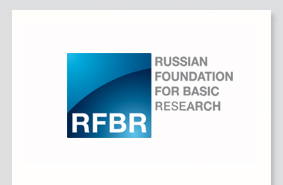 SCTMS team won two grants of the Russian Foundation for Basic Research (RFBR) within call for proposals 2018 for Russian projects of basic research.
SCTMS team won two grants of the Russian Foundation for Basic Research (RFBR) within call for proposals 2018 for Russian projects of basic research.The project “Information and analytical system for prediction of composition and properties of coordination polymers and metal-organic frameworks” (project supervisor – Prof. Vladislav Blatov) is among the most actively developing fields of SCTMS scientific work – development of computer tools for design of novel metal-organic frameworks. The main aim of the project is to search for correlations between chemical composition, crystal structure, geometrical and topological properties of coordination polymers and metal-organic frameworks. Basing on the found correlations, the research team intends to determine the general and particular regularities of crystal structures’ formation of the abovementioned chemical compounds and develop the information analysis system ExMOF that will enable prediction of their structure and properties (adsorptive in particular) considering the data on structural units. ExMOF will merge into the expert system on theoretical materials science being developed by SCTMS under the Mega-grant of the Russian Government. “We envision that ExMOF system will be an effective tool of novel materials’ elaboration in experimental laboratories worldwide”. – Prof. Blatov comments.
The project “Development of hybrid topological and quantum-mechanical approach to structure modeling and prediction of intermetallic compounds” (project supervisor – Prof. Alexander Krutov) is also aimed at expert system elaboration but focused on other compounds and materials. Intermetallics are inorganic compounds with complex structure; prediction of their structure and properties is a difficult scientific problem. Within the implementation of the Mega-grant of the Russian Government, SCTMS scientists achieved valuable results that may enable to find approaches to the problem solution. The project is dedicated to new theoretical methods of search and prediction of physical and chemical properties of previously unknown intermetallic compounds. The methods include rapid screening algorithms of available databases of intermetallics as well as DFT computations. The essential part of the project is focused on experimental verification of theoretical models including laboratory synthesis and performances measurement of predicted intermetallic compounds. The project implementation offers opportunities for elaboration of a unique methodology of directed synthesis of intermetallic compounds applying available crystallographic data on current compounds of this chemical family and quantum-mechanical modelling of potential novel structures and compositions. “At present there are no analogues of such methods, - Prof. Krutov says. – Our prediction methods will promote to design of materials with the properties relevant for aerospace, oil-and-gas, engineering industries as well as for electronics and production of sensors.”






